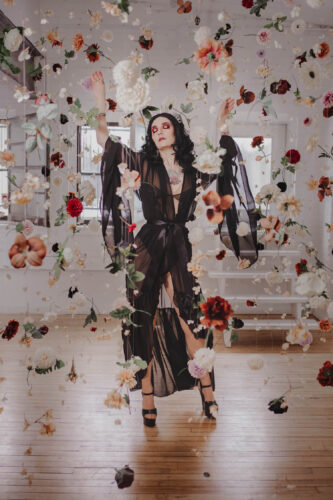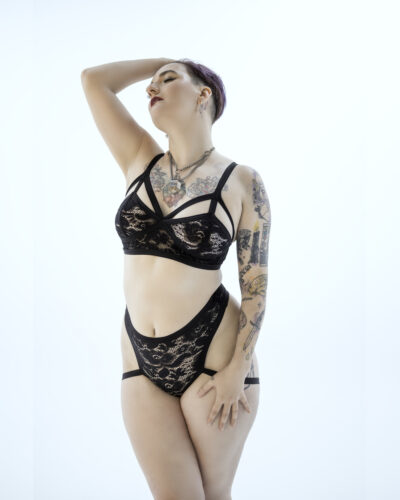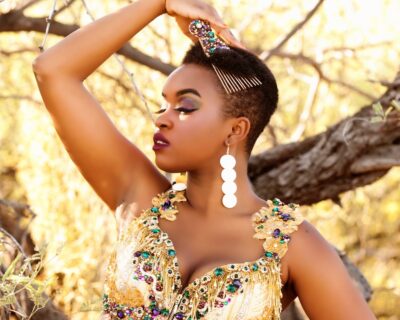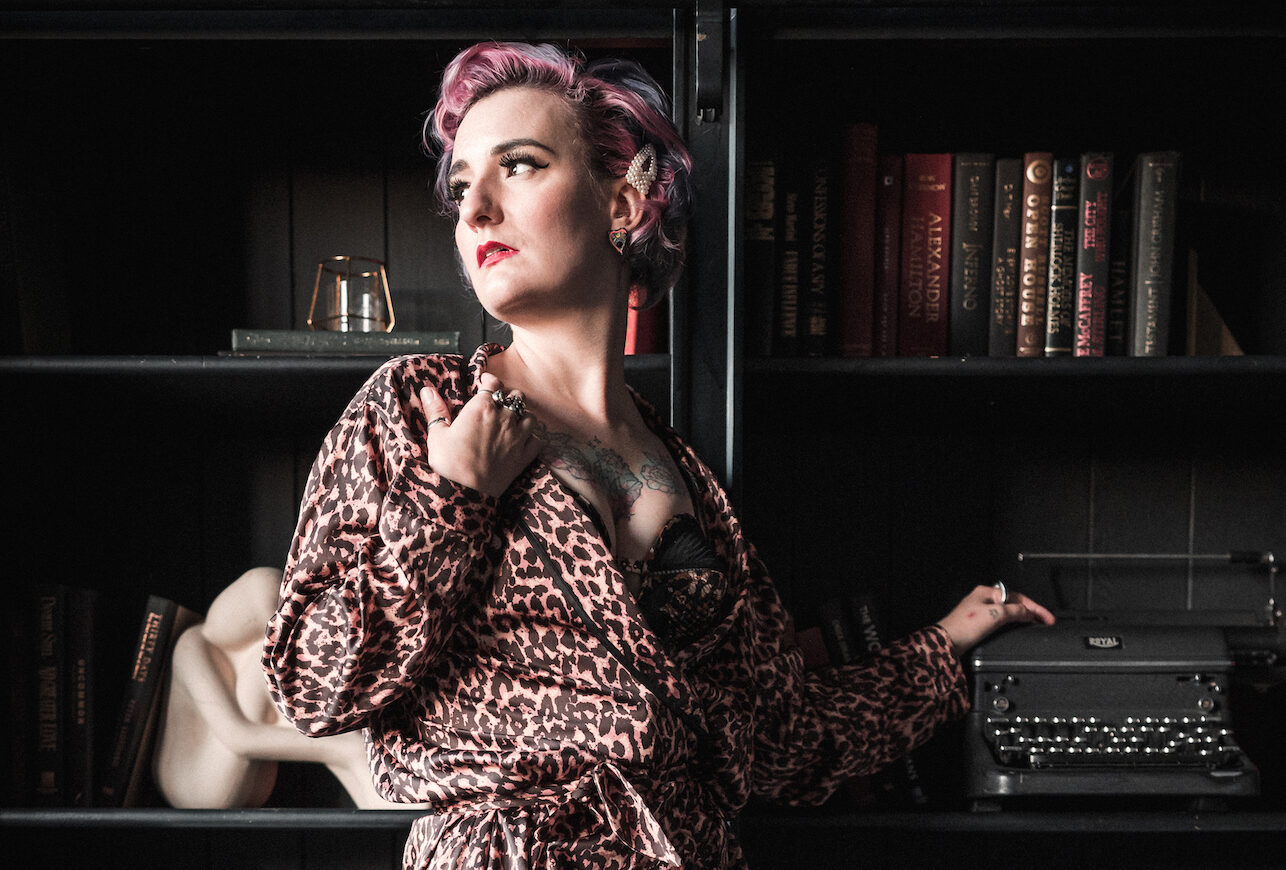I’ve spent the last decade immersed in the study, practice, and production of neo-burlesque. Heck, I even got a PhD in performance studies to specialize in the study of it.
I found burlesque when I was in my early 20s, starting grad school, and looking for an artistic outlet that I’d been missing since diving head first into a poli-sci degree and missing the theatre and acting world I had been involved in since childhood. Once I set foot in the world of neo-burlesque, which is equal parts camp and glamour, I was hooked.
For the uninitiated, neo-burlesque is a performance art form that merges many different influences and genres, including dance, music, theatre, drag, clowning, and yes, of course, the ubiquitous striptease. The stripping is beautiful, sexy, and fun — but honestly, I am more interested in the construction of an act and how each performer exercises agency in what they choose to reveal to their audience. There is profound artistry in distilling a character and story into a 5-minute spectacle.

Photo by Heavenly Visuals
The root word of burlesque, “burla”, comes from Italian via Latin, meaning to mock, joke, or ridicule. Burlesque performance tradition dates to Victorian-era vaudeville performance, and even further back to literary burlesque. Everything in burlesque is turned up to 11 — it uses archetypical characters to reflect on issues such bodily autonomy, gender performativity, and sexism.
One of the things that initially drew me to burlesque was how body-inclusive it was. As someone who had battled disordered eating throughout most of my life and then became chronically ill around the same time I discovered burlesque, seeing bodies of all shapes and sizes and abilities and being unapologetic in taking up space was revolutionary.
Burlesque has helped me to heal my relationship with my body, coming to a place of body-neutrality on my worst days and body-positivity on my best ones. Burlesque has taught me that I did not have to shrink myself. Finding a space where being extra was actively encouraged felt like a breath of fresh air. It has encouraged me to be loud, unapologetic, and, dare I say — unruly.

Photo by LXE.photo
Burlesque performers embody what feminist scholar Kathleen Rowe refers to as an ‘unruly woman’ (though burlesque is inclusive of all genders) — someone who defies patriarchal definitions of what is ‘expected’ of them. This means being loud. Being unapologetic. It means enjoying sex, my body, and other physical pleasures like eating.
For the last four years, I’ve been part of the rebuilding of the Toronto Burlesque Festival from the ground up. We’re newly registered as a non-profit organization and were fortunate to receive funding from a number of arts granting organizations this year. I am so proud of what we have accomplished in resurrecting this festival and, in particular, the accessibility measures that we have been able to put in place.
This year’s lineup features over 60 performers from across North America. Our festival had a mandate of hiring a minimum of 40% BIPOC artists and we are happy to say that we exceeded that goal.
Our headliners include Montreal-based dance/roller skate duo Kozmic Joy, featuring three time Burlesque Hall of Fame winner Joy Rider and 4-time world-champion roller skater/Cirque du Soleil movement artist Kozmic Skater; reigning burlesque queen of the NYC Noire Pageant Chola Magnolia whose cha cha skills will knock your socks off; and Toronto-born and raised hometown hero Zyra Lee Vanity, former Queen of the Panama Burlesque Festival and three time Top 50 burlesque performer in the world (21st Century Burlesque Magazine). We are also pleased to welcome Ka’ena, our headlining burlesque legend coming all the way from Hawaii, who at 85 years old, has been performing burlesque since the 1950s.

Zyra Lee Vanity. Photo by Britten Leigh
The festival also has nine workshops lined up taught by our headliners and headlining performers, an opening night cocktail reception with a photography retrospective of the festival’s past, a pop-up vendors market on Friday and Saturday nights, and a Sunday morning high-tea brunch.
The Toronto Burlesque Festival returns this weekend, October 3-6, at the El Mocambo (The venue has been renovated and now includes some very Instagramable photo spots that pay homage to the venue’s rock-n-roll history.)
Each show features a different cast and host, with four sultry showcases of glamour, humour, and high-caliber performances rooted in messages of diversity, inclusivity and body-positivity.
–
Loretta Jean (she/they) has a PhD from the University of Toronto’s Centre for Drama, Theatre & Performance Studies. Their dissertation is an oral history and ethnographic study of nerdlesque. She has taught and lectured on burlesque history both at her university and invited talks. She is a founding member and producer with Nerd Girl Burlesque, established in 2012. Over the last decade, she has produced over 150 burlesque revue shows.
The Toronto Burlesque Festival is running from October 3-6—tickets are available here.



 Follow Us On Instagram
Follow Us On Instagram
